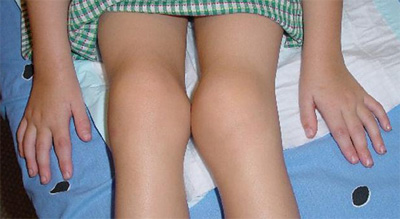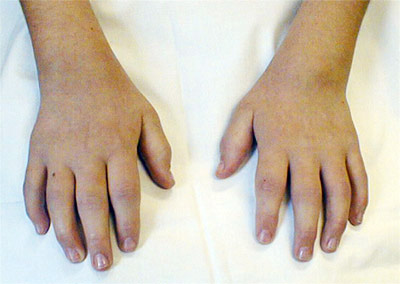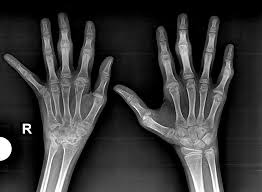
Juvenile rheumatoid arthritis (JRA) is the most common chronic rheumatologic disease in children and is one of the most common chronic diseases of childhood (see the image below). The etiology is unknown, and the genetic component is complex, making clear distinctions between the various subtypes difficult. A new nomenclature, juvenile idiopathic arthritis (JIA), is being increasingly used to provide better definition of subgroups.
 What Causes Juvenile Chronic Arthritis? What Causes Juvenile Chronic Arthritis?
Researchers are uncertain what causes JIA. There is no evidence that foods, toxins, allergies or lack of vitamins play a role in developing the disease. Current research indicates that there is a genetic predisposition to JIA. More than a dozen genetic markers have been identified for JIA, and hun≠dreds more are being considered. However, genetic markers alone canít determine who will get arthritis. Researchers believe that a trigger, like a virus, can start the disease process in those children with the genetic tendency.
What Are the Symptoms of Juvenile Chronic Arthritis?

History findings in children with JIA may include the following:
• Arthritis present for at least 6 weeks before diagnosis (mandatory for diagnosis of JIA)
• Either insidious or abrupt disease onset, often with morning stiffness or gelling phenomenon and arthralgia during the day
• Complaints of joint pain or abnormal joint use
• History of school absences or limited ability to participate in physical education classes
• Spiking fevers occurring once or twice each day at about the same time of day
• Evanescent rash on the trunk and extremities
• Psoriasis or more subtle dermatologic manifestations
Physical findings are important to provide criteria for diagnosis and to detect abnormalities suggestive of alternative etiologies, as well as to indicate disease subtypes. Such findings include the following:
Arthritis: Defined either as intra-articular swelling on examination or as limitation of joint motion in association with pain, warmth, or erythema of the joint; physical findings in JIA reflect the extent of joint involvement
Synovitis: Characterized by synovial proliferation and increased joint volume; the joint is held in a position of maximum comfort, and range of motion often is limited only at the extremes
|